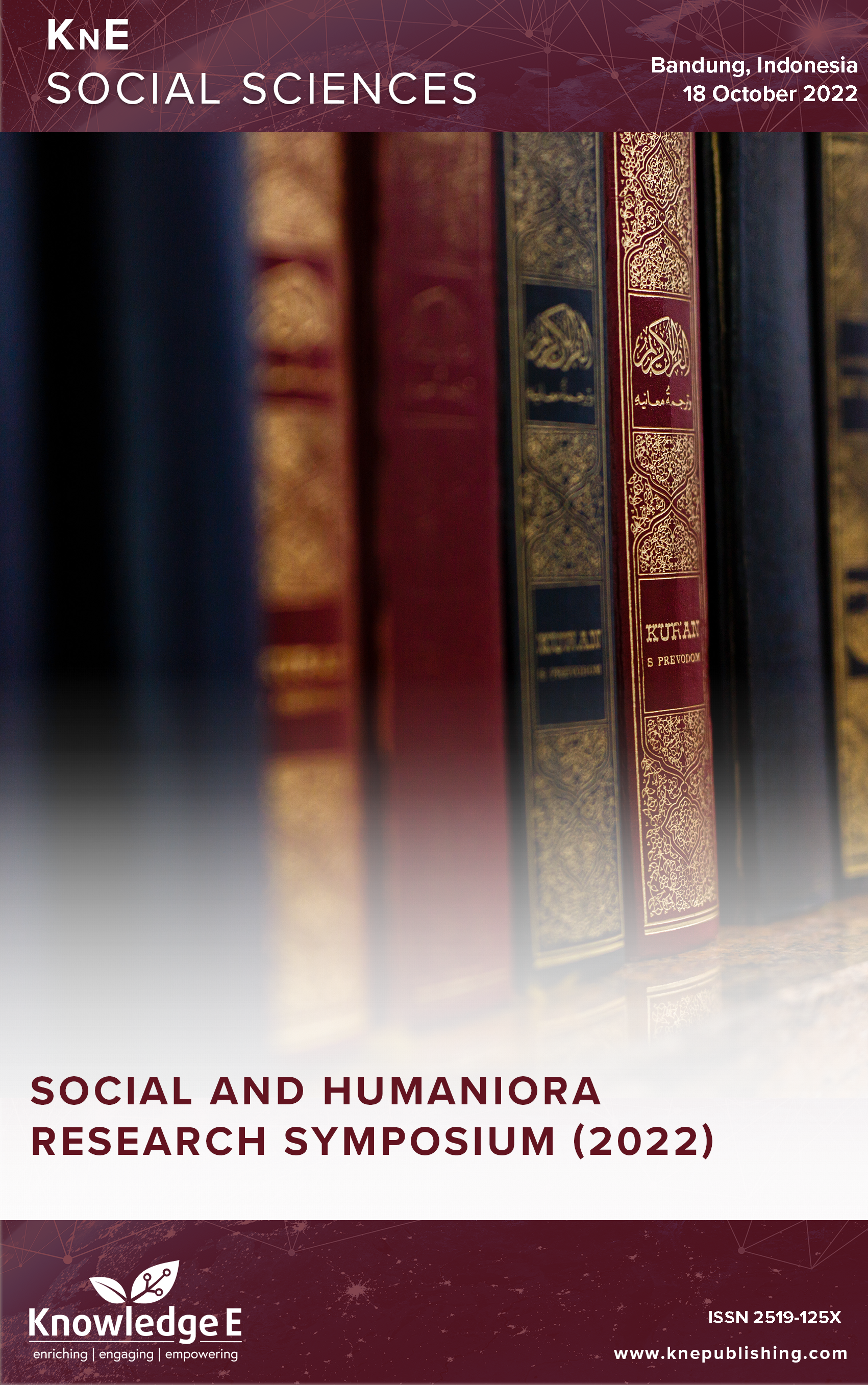Model of Stakeholder Engagement in Halal Tourism Ecosystems in Rural Areas
DOI:
https://doi.org/10.18502/kss.v8i18.14272Abstract
This study aims to explore stakeholder engagement models in halal tourism ecosystems in rural areas. The research focuses on understanding how stakeholders’ involvement in production, services, infrastructure, and human resources (HR) in the field of halal tourism in rural areas contributes to building an ecosystem. The analysis, based on the concept of Halal in the tourism industry, aims to provide clarity to the Halal ecosystem within hotel, culinary, and tourist destination businesses. The urgency of this research lies in identifying, analyzing, and evaluating the involvement of each stakeholder as a component of the halal tourism ecosystem, with particular emphasis on government regulations. The research adopts a qualitative method using a case study approach within a constructivist paradigm. In-depth interviews and focus group discussions (FGDs) are conducted to gather data. The primary objectives of this research are to develop a model of the Halal Tourism Ecosystem and provide recommendations for synergizing and optimizing the potential of halal tourism from each stakeholder. Four villages in West Java, namely Dayeuh Kolot Village, Alam Endah Village, Cisayong Village, and Sukalaksana Village, were selected as research locations using purposive sampling. Informants representing various sectors, such as hotels, restaurants, tourist attractions, halal centers, the Indonesian Ulema Council (MUI), regional governments, and elected village heads, were involved in the research. The findings reveal that the construction of a halal tourism ecosystem involves six stakeholder components that interact and relate to each other during implementation. These stakeholders include the Ministry of Tourism of the Republic of Indonesia as the ”leading sector” responsible for regulating tourism development in various regions. The Indonesian Ulema Council (MUI) issues Fatwas to align tourism activities with the principles of the Qur’an and Hadith. Regional leaders play a vital role in policymaking, providing infrastructure, and supporting human resource development and funding for halal tourism initiatives. Tourism business actors, such as hotel owners, managers, tourist attractions, restaurants, and tourism bureaus, commit to capitalizing on halal tourism opportunities within their business operations. While the ideal halal tourism industry ecosystem relies on active involvement and proper execution of roles by all stakeholders, the study identifies challenges. Awareness and achievement of the vision and mission among stakeholders in developing halal tourism remain low due to suboptimal communication, coordination, and collaboration. Therefore, the government’s role is vital in acting as a conductor, harmonizing the efforts of stakeholders in the development of Indonesia’s halal tourism industry.
Keywords: engagement model, halal ecosystem, tourism stakeholders
References
[2] Assidiq K, Hermant H, Rinuastuti B. PERAN POKDARWIS DALAM UPAYA MENGEMBANGKAN PARIWISATA HALAL DI DESA SETANGGOR. JMM UNRAM - MASTER OF MANAGEMENT JOURNAL. 2021;10:58. https://doi.org/10.29303/jmm.v10i1A.630
[3] Basyariah N. Konsep Pariwisata Halal Perspektif Ekonomi Islam. Youth & Islamic Economic. 2021;2(1):1–6.
[4] Pasarela H, Soemitra A. Halal Tourism Development Strategy in Indonesia. Konfrontasi: Jurnal Kultural. Ekonomi Dan Perubahan Sosial. 2022;9(1):14–26.
[5] Safitri H, Kurniansyah D. Analisis Komponen Daya Tarik Wisata di Desa Wisata Pentingsari. KINERJA. 2021;18(4):497–501.
[6] Morant-Martínez O, Santandreu-Mascarell C, Canós-Darós L, Roig JM. Ecosystem model proposal in the tourism sector to enhance sustainable competitiveness. Sustainability (Basel). 2019;11(23):6652.
[7] Isa bin Surah At-Tirmidzi M. Terjemah Sunan At-Tirmidzi. Semarang: CV. As-Syifa’, 1992.
[8] Njegovanovic A. Tourism in Neuroscience Framework/Cultural Neuroscience, Mirror Neurons, Neuroethics. International Journal of Law and Public Administration. 2019;3(1):1.
[9] Pitana IG, Gayatri PG. (2005). Sosiologi pariwisata. Yogyakarta. STPBI Press, 1(1).
[10] Rachmiatie A, Rahmafitria F, Suryadi K, Larasati AR. Classification of halal hotels based on industrial perceived value: a study of Indonesia and Thailand. International Journal of Tourism Cities. 2022;8(1):244–259.
[11] Satriana ED, Faridah HD. Halal Tourism: Development, Chance and Challenge. Journal of Halal Product and Research. 2018;1(2):32.
[12] Sunandar A, Pratama A, Handayani A, Fertilia NC. Analysis of Tourism Village development infrastructure in five super priority destinations on tourist satisfaction. ADRI International Journal of Civil Engineering. 2022;7(1):118–123.
[13] Wibowo MG. Indeks Pariwisata Halal (Implementasi Fatwa DSN MUI Tentang Pedoman Penyelenggaraan Pariwisata berdasarkan prinsip Syariah di kota Bukittinggi). Jurnal Ekonomi Syariah Indonesia. 2020;10(2):84- 95. https://ejournal.almaata.ac.id/index.php/JESI/index
[14] Wijayanto D, Achmadi M, Amrullah. MONOGRAF: WISATA HALAL DAN IMPLIKASINYA TERHADAP MASYARAKAT. 2019.
[15] Wirdayanti A, Asri A, Anggono BD, Hartoyo DR, Indarti E, Gautama H. S, Harefa HE, Minsia K, Rumayar M, Indrijatiningrum M, Susanti T, Ariani V. Pedoman Desa Wisata. 2021;96. https://www.ciptadesa.com/2021/06/pedoman-desa-wisata.html

